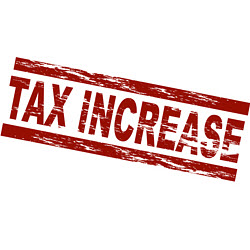 How To Become A Landlord
How To Become A Landlord
The ultimate goal of investing in rental property is to turn a profit. To ensure that you achieve that goal it is essential that you follow several critical guidelines. Most of us dream of becoming a landlord but it an easy or a difficult job? Before you start searching for a home to rent, you should think about the responsibility that comes with being a landlord to your tenants. If you’re interested in investing in real estate, the single-family rental market might be a good option. Being a landlord can be a profitable venture that provides a steady income stream while your property appreciates in value. You might also be able to enjoy certain tax advantages while you build equity in the home.
Here are 8 valuable tips for becoming a successful landlord and start a rental property business.
1. Screen Your Tenants
First, always make sure that you check tenant references. This is the first step of becoming a successful landlord. This can be a burdensome step and many landlords overlook it because they feel as though they have good instinct when they meet with the tenant. But not checking references can lead to a number of problems later on. You will uncover a wealth of information about potential problems before you rent to a prospective tenant. It’s also worth the time to do a background and credit check on all potential tenants. There are several online tenant-screening services available, and you should be sure to check potential tenants’ credit scores. You should also conduct an interview to make sure you’re comfortable interacting with them, and check references, especially from employers or past landlords.
 A tax break that has long been untouchable could soon be in for some serious scrutiny. Many home buyers deduct their mortgage interest when assessing their tax bill, a perk that has helped bolster the income of millions of families – and the broader housing market. But as President Obama and Congress try to hash out a deal to reduce the budget deficit, the mortgage interest deduction will likely be part of the discussion.
A tax break that has long been untouchable could soon be in for some serious scrutiny. Many home buyers deduct their mortgage interest when assessing their tax bill, a perk that has helped bolster the income of millions of families – and the broader housing market. But as President Obama and Congress try to hash out a deal to reduce the budget deficit, the mortgage interest deduction will likely be part of the discussion. I just locked down a 2.875% interest rate, fixed for the 15-year term of the mortgage. No points. With rates like these, I find myself rethinking the idea that I want to pay off my mortgage.
I just locked down a 2.875% interest rate, fixed for the 15-year term of the mortgage. No points. With rates like these, I find myself rethinking the idea that I want to pay off my mortgage.


 We just announced our latest
We just announced our latest  HUD properties are available all over the United States, and make great investments for anybody that is interested. These homes often get a bad rap for being in bad condition, but in all actuality they are not any worse than other foreclosed homes that are available. Just like anything else, there are some HUD properties that are in good condition, and some that are in need of repairs. It is simply a matter of how well the past owner cared for the home.
HUD properties are available all over the United States, and make great investments for anybody that is interested. These homes often get a bad rap for being in bad condition, but in all actuality they are not any worse than other foreclosed homes that are available. Just like anything else, there are some HUD properties that are in good condition, and some that are in need of repairs. It is simply a matter of how well the past owner cared for the home. Real estate has always been the fastest and safest investment vehicle to acquire wealth and reach millionaire status. But without a down payment your
Real estate has always been the fastest and safest investment vehicle to acquire wealth and reach millionaire status. But without a down payment your 